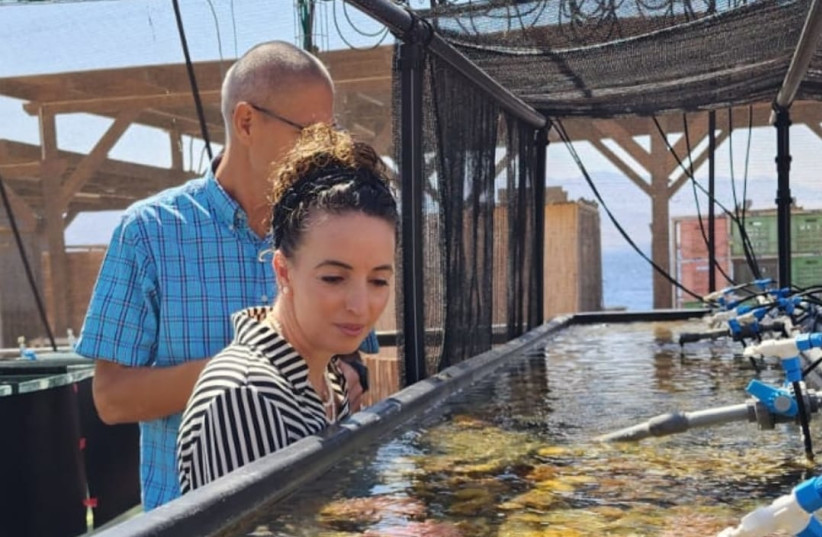The Red Sea is warming 2.5 times faster than the global average determined by the Intergovernmental Panel on Climate Change (IPCC), according to a report by the Ministry of Environmental Protection on Thursday.
The ministry unveiled its findings from the Israel National Monitoring Program at the Gulf of Eilat, which houses the world's northernmost coral reef. The 2022 report revealed that the coral reef's deteriorating condition remains a pressing concern. Threats to the reef include ocean warming, severe storms, and the emergence of harmful diseases.
The ongoing trend of increasing deep-sea water temperatures persists from previous assessments regarding ocean warming. Concurrently, surface water temperatures have risen since 1988, averaging a yearly increase of 0.045°C.
In 2022, there was no observed temperature peak as in previous years, with the highest recorded sea temperature being 2 degrees cooler than the prior year, reaching 27°C.

Eilat's ocean ecosystem
"The Eilat coral reef, both nationally and globally significant, is grappling with the repercussions of climate change and extreme weather events that contribute to its decline," stated Minister of Environmental Protection Idit Silman.
She emphasized that given the worsening global conditions like ocean warming and heightened acidity, the coral reef's ability to withstand local stressors such as marine pollution, oil spills, and unregulated development is strained.
"All parties have a responsibility to proactively employ scientific insights in formulating environmental policies to protect the Gulf of Eilat's ecological system and coral reef in light of the existing challenges," Silman added.
The 2022 report was a collaborative effort involving the Interuniversity Institute for Marine Sciences in Eilat. It was guided by a scientific committee led by Prof. Noga Kronfeld-Schor, Chief Scientist of the Environmental Protection Ministry. Monitoring the Gulf of Eilat and its coral reef began in 2003.
One notable focus of the report was the aftermath of the severe southern storm that struck Eilat in March 2020, inflicting significant damage to its shores and the coral reef. The storm resulted in the loss of coral colonies and the sediment cover, which was washed away by the powerful waves.
The extent of damage to different parts of the reef varied, with losses ranging from 6% to 22% depending on the surveyed locations. In the subsequent year, the decline of coral cover, the percentage of an area occupied by corals, continued by approximately 1.5% across the Gulf. This decrease was likely attributed to sediment runoff generated during the storm.
However, a glimmer of hope emerged in 2022 as signs of recovery for the coral reef started to manifest, with a gradual increase in the coral cover.
Furthermore, over the last decade, a consistent decrease in the population density of sea turtles in Eilat has been observed. These sea turtles, which feed on algae, play a vital role in maintaining the balance between corals and algae within the ecosystem. Algae bloom in 2022 was expected to increase sea turtle density, a trend anticipated to be assessed during the 2023 monitoring. However, in 2023, a disease outbreak severely impacted the sea turtle population in the Gulf, casting doubts on the possibility of recovery.
Thus far, the seagrass has not been affected, as herbivorous fish consume the algae. It is hoped that a disease affecting herbivorous fish will not emerge.
This situation underscores the need to prohibit fishing in the Gulf of Eilat.
